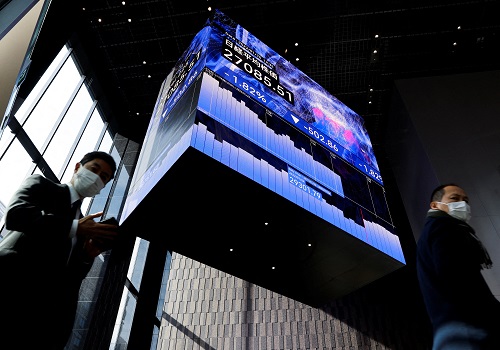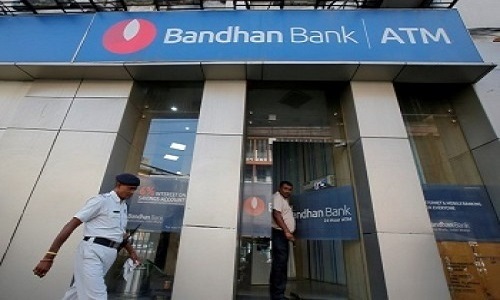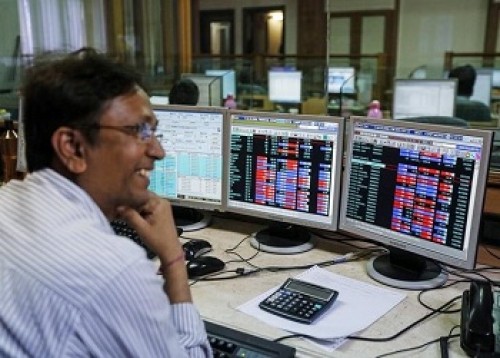Late selloff drag benchmarks lower
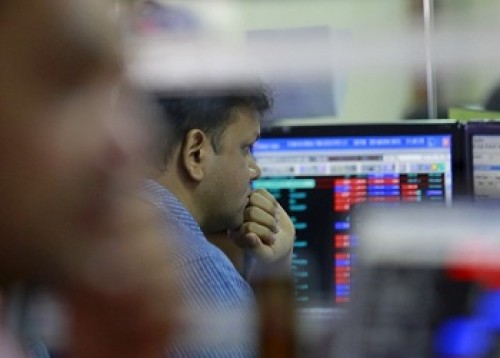
Follow us Now on Telegram ! Get daily 10 - 12 important updates on Business, Finance and Investment. Join our Telegram Channel
Selling which occurred in late trade mainly dragged Indian equity benchmarks lower on Wednesday. After a cautious start, markets managed to trade mostly in green terrain for the day as traders continued to buy beaten down but fundamentally strong stocks. Sentiments remained upbeat after a survey by the National Council of Applied Economic Research (NCAER) showed that as the second wave of Covid-19 eased off, business sentiment in the country hit an over two-year high in the September quarter (Q2) of the current financial year (FY22). Adding optimism, Finance Minister Nirmala Sitharaman said the government’s social protection and economic stimulus packages, along with timely structural reforms in various sectors, have been pivotal in India’s economic recovery process. Meanwhile, the government is planning to come up with a semiconductor design-linked incentive policy to promote domestic manufacturing as well as attract global electronic chip companies to the country.
However, traders booked profit in last leg of trade which mainly dragged key gauges lower. Traders turned anxious after Chairman of the 15th Finance Commission -- N K Singh has said the International Monetary Fund’s (IMF's) decision to revise India's potential growth forecast downwards to 6 per cent citing the coronavirus pandemic is a ‘gross under estimation’ and observed that calculations of growth potential are always problematic. He mentioned ‘The issue of our medium term growth potential projected by the IMF last week by recaliberating it from 6.25 per cent to 6 per cent, in my view, is gross under estimation.’
Weak opening in European counters too dampened sentiments with most of the European markets trading lower after concerns about Chinese intervention hit metal prices, while mixed corporate earnings reports kept investors on edge. Asian markets ended mostly lower on Wednesday, after Hong Kong's merchandise exports grew at a softer pace in September. The data from the Census and Statistics Department showed that exports rose 16.5 percent year-on-year in September, after a 25.9 percent increase in August. Imports gained 23.5 percent annually in September, after a 28.1 percent increase in the previous month.
Back home, multilateral development bank Asian Infrastructure Investment Bank (AIIB) said it will support India in ramping up its healthcare infra facilities to meet future health challenges. The Beijing-based funding institution said it is working with the Indian government to develop climate resilient infrastructure projects. On the sectoral front, auto stocks remained in focus as India Ratings and Research (Ind-Ra) revised downwards the domestic passenger vehicle growth estimates to 15-18 per cent this fiscal, citing semiconductor shortage that could extend to 2022.
Finally, the BSE Sensex declined 206.93 points or 0.34% to 61,143.33 and the CNX Nifty was down by 57.45 points or 0.31% to 18,210.95.
The BSE Sensex touched high and low of 61,576.85 and 60,989.39, respectively and there were 14 stocks advancing against 16 stocks declining on the index.
The broader indices ended in green; the BSE Mid cap index gained 0.02%, while Small cap index was up by 0.30%.
The top gaining sectoral indices on the BSE were IT up by 1.01%, TECK up by 0.76%, Healthcare up by 0.62%, Consumer Discretionary up by 0.54% and Telecom up by 0.39%, while Metal down by 1.82%, Bankex down by 1.12%, Energy down by 0.94%, Oil & Gas down by 0.70% and Utilities down by 0.55% were the top losing indices on BSE.
The top gainers on the Sensex were Asian Paints up by 4.42%, Sun Pharma up by 1.45%, Infosys up by 1.44%, SBI up by 1.28% and Ultratech Cement up by 1.19%. On the flip side, Axis Bank down by 6.52%, Bajaj Finance down by 4.70%, Bajaj Finserv down by 1.85%, Indusind Bank down by 1.69% and Hindustan Unilever down by 1.61% were the top losers.
Meanwhile, signalling an improvement in sentiments over the pre-pandemic period, think-tank -- the National Council of Applied Economic Research (NCAER) has said its Business Confidence Index (BCI) increased by 90 per cent in the July-September this financial year over the first quarter, indicating signs of improvement. It highlighted that after the second COVID-19 wave, business sentiments recovered in the second quarter of 2021-22, compared to those prevailing in the preceding three months. The BCI increased by 90 per cent on a quarter-on-quarter (q-o-q) basis and by about 80 per cent on a year-on-year (y-o-y) basis. National Council of Applied Economic Research (NCAER) carried out its 118th Round of its Business Expectations Survey (BES) in September 2021. The BCI is also higher than what it was in 2019-20:Q2.
Poonam Gupta, Director-General, NCAER, said ‘The current BES survey points to a recovery in business sentiments post the second wave of the pandemic. The recovery is broad-based across firm size, ownership, and industrial sectors.’ Barring the West zone, business sentiments have improved for all the regions. The BCI decreased in the West by nearly 10 per cent in 2021–22:Q2, whereas it increased in the East (Kolkata), North (National Capital Region of Delhi), and South (Chennai and Bengaluru). NCAER said the upward movement in BCI was driven by an improvement in sentiments for all the four components of the BCI -- overall economic conditions will improve in the next six months; the financial position of firms will improve in the next six months; present investment climate is positive as compared to six months ago and present capacity utilisation is close to or above the optimal level.
NCAER said sentiments improved in the second quarter of the current fiscal about production, domestic sales, exports, new orders, imports of raw materials, and pre-tax profits. Sentiments about costs, especially ones related to raw materials, remained elevated with two-thirds of the firms expecting the costs of raw materials per unit of output to go up in the next six months as compared to 54 per cent in the first quarter of 2021-22. NCAER Political Confidence Index (PCI) increased by nearly 110 per cent (109.4 per cent) in the July-September period 2021-22 over the previous quarter, and by more than 60 per cent as compared to the corresponding quarter of the last year.
The CNX Nifty traded in a range of 18167.90 and 18342.05 and there were 23 stocks advancing against 27 stocks declining on the index.
The top gainers on Nifty were Asian Paints up by 4.20%, UPL up by 3.96%, Divi's Lab up by 2.60%, Cipla up by 1.65% and Infosys up by 1.48%. On the flip side, Axis Bank down by 6.46%, Bajaj Finance down by 4.75%, ONGC down by 3.19%, Tata Motors down by 2.11% and Bajaj Finserv down by 1.86% were the top losers.
European markets were trading lower, UK’s FTSE 100 decreased 18.06 points or 0.25% to 7,259.56, France’s CAC decreased 10.51 points or 0.16% to 6,756.00 and Germany’s DAX was down by 56.38 points or 0.36% to 15,700.68.
Asian markets ended mostly lower on Wednesday as inflation worries persisted, while investors awaited the central bank policy meetings in Europe and Japan this week for directional cues. Chinese shares dropped after Chinese property developer Modern Land became the latest firm to miss a payment on a dollar bond, indicating that the Chinese property market remains in turmoil. Moreover, heightened Sino-US tensions over Taiwan also kept the market sentiments bearish. Japanese shares declined as investors remained cautious ahead of a parliamentary election on the weekend.
Above views are of the author and not of the website kindly read disclaimer

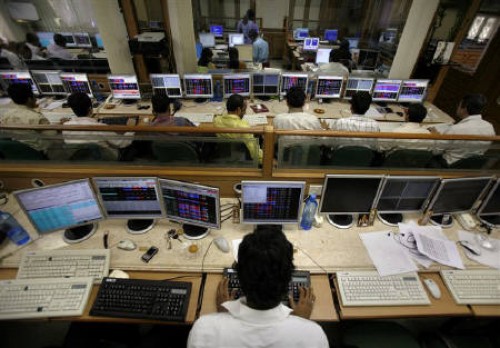

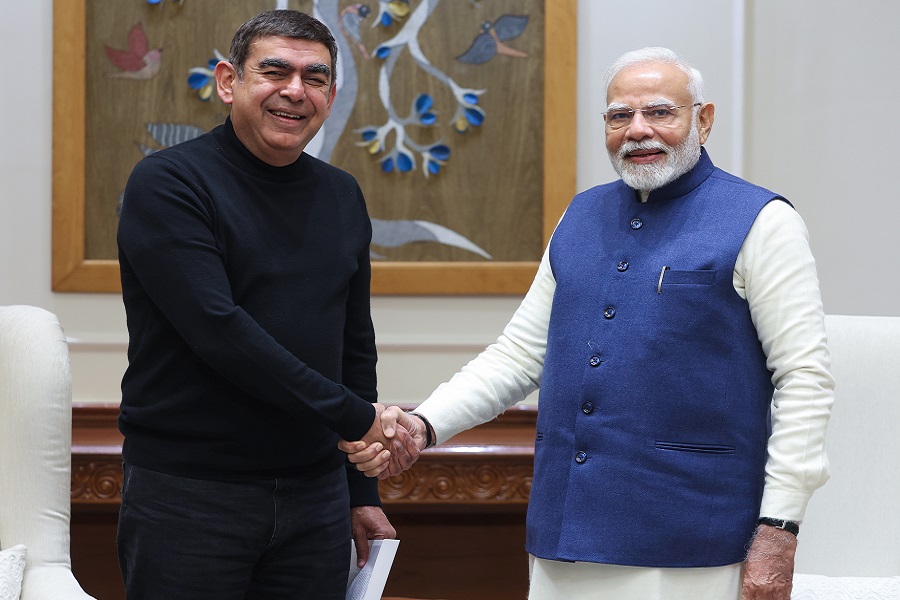

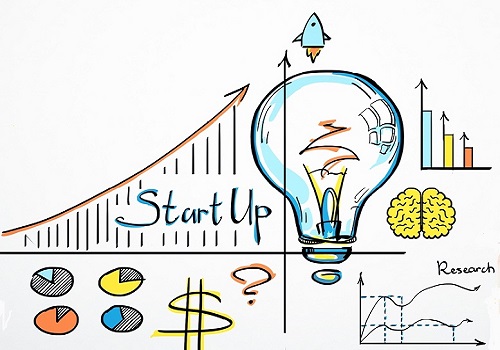
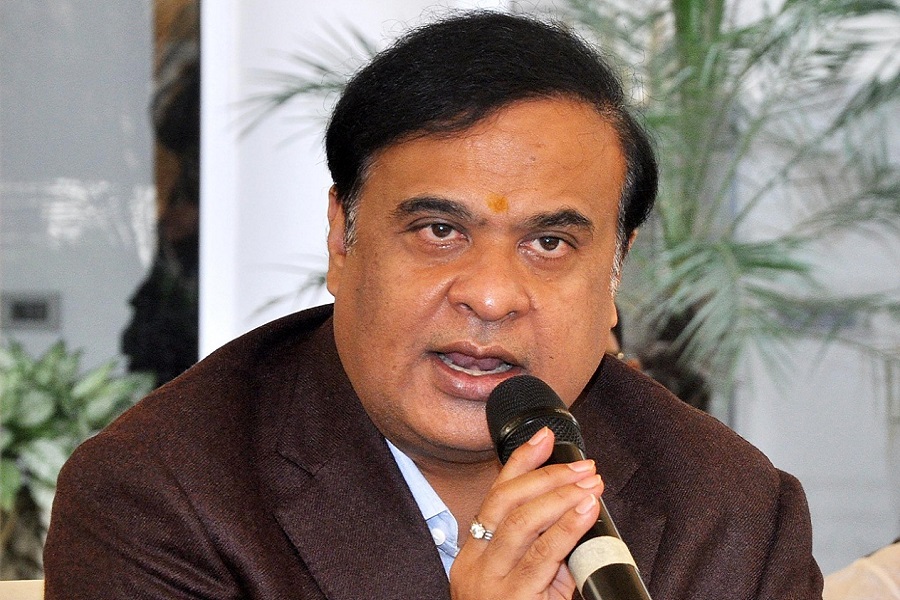



Tag News

Weekly Market Analysis : Markets strengthened recovery and gained nearly 2% in the passing w...







